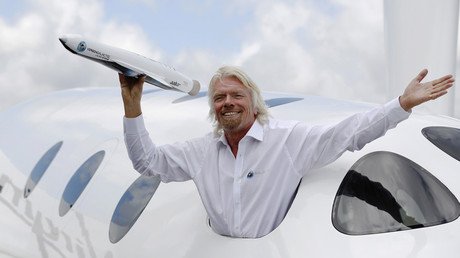Trump’s trade tariffs pushing Europe closer to China & Russia

US President Donald Trump's introduction of tariffs on steel and aluminum imports from Canada, Mexico and the EU will force them to build new trade ties, professor at Aalto University and CUHK, Carl F. Fey, told RT.
“US actions will surely push the EU to strengthen trade relationships with other countries such as China. Russia, being a near neighbor could also benefit,” he told RT, adding “it’s unlikely that short-term this will cause the EU to lift sanctions against Russia.”
According to the expert, “One of the largest political results of US actions is likely to be that it will have more difficult in getting the EU, which basically agrees with many of the US complaints against China, to join them in unison in their trade actions against China.”
US trade tariffs are economic sanctions in disguise - Putin https://t.co/A40bmqaB4npic.twitter.com/xB4CSKa7Zz
— RT (@RT_com) June 7, 2018
Fey agreed with Trump’s statement that the US has not had as great trade deals historically as it could have, but he strongly disagrees with the president's approach. “As Trump seeks to renegotiate/rebalance these arrangements it will end up being at the expenses of trading partners to some degree,” he points out.
Implementing tariffs is not the way to go, Fey said. “In my view, and the view of most economists and business professors, normally nobody wins in a trade war.”
Fey pointed out the irony that it was the US that historically has been the leader pushing the world towards free-trade, and now it is making a substantial switch to being against it. “Recent US actions in implementing new tariffs on steel and aluminum imports from its closest allies like the EU and Canada do not seem the way to behave towards allies,” said Fey. He explained it is dangerous when one country introduces tariffs to protect strategically important industries while other countries will then react similarly, and then the US should not complain.
Tariffs on Harleys, bourbon & blue jeans – how Europe plans to retaliate against Trump https://t.co/BgeRQxas6cpic.twitter.com/Hv0z4riSy8
— RT (@RT_com) June 1, 2018
“It is a dangerous game with a slippery downward slope,” the professor stressed.
According to Fey, the EU has made a swift and unified response to US trade actions imposing its own counter tariffs on select US goods. It has wisely chosen the goods to place tariffs on, he said, while “key swing states in the US are dependent on exports.”
“The real test for the EU, however, will come as negotiations with the US move forward since different countries in the EU are dependent on exporting products from different industries.”
For more stories on economy & finance visit RT's business section














